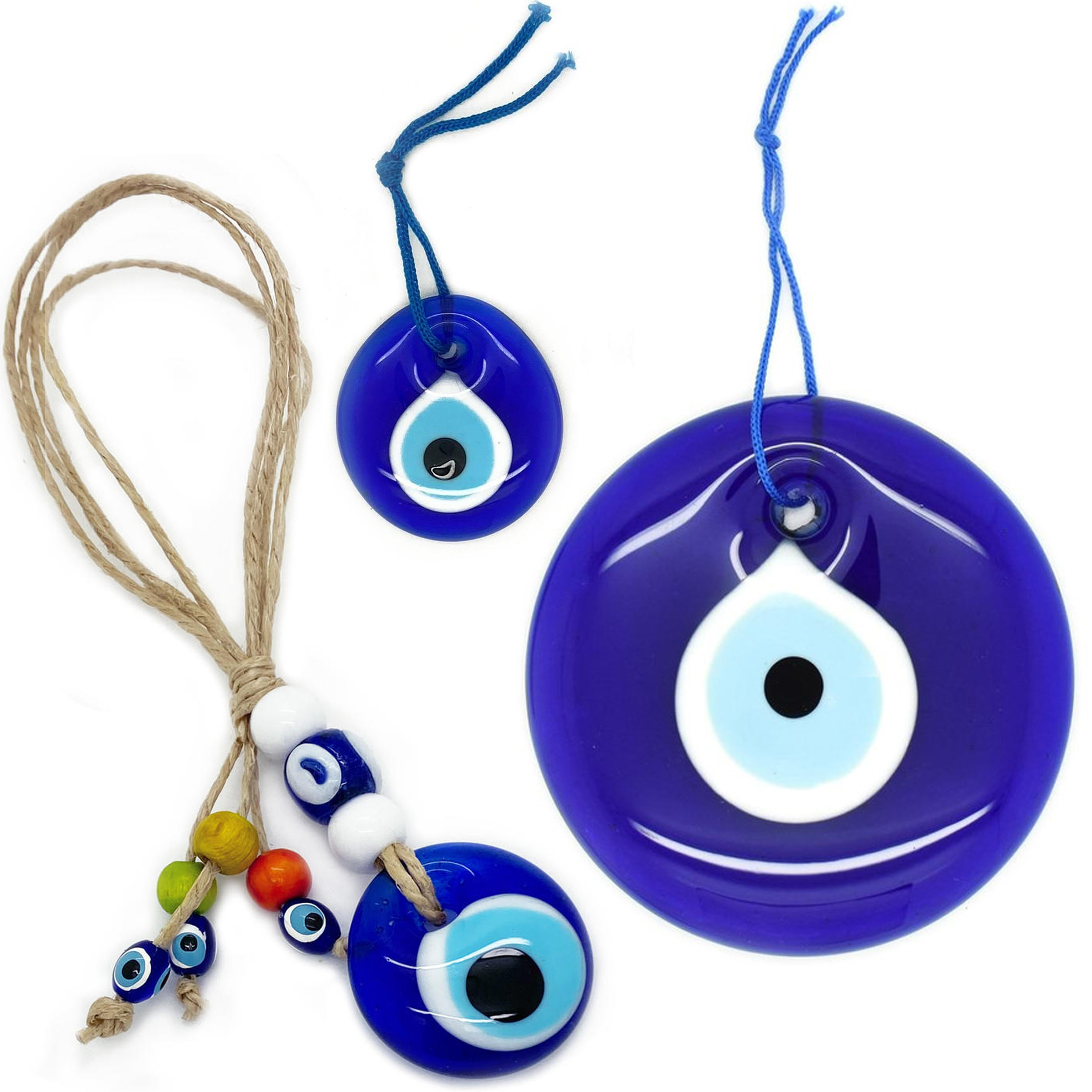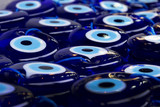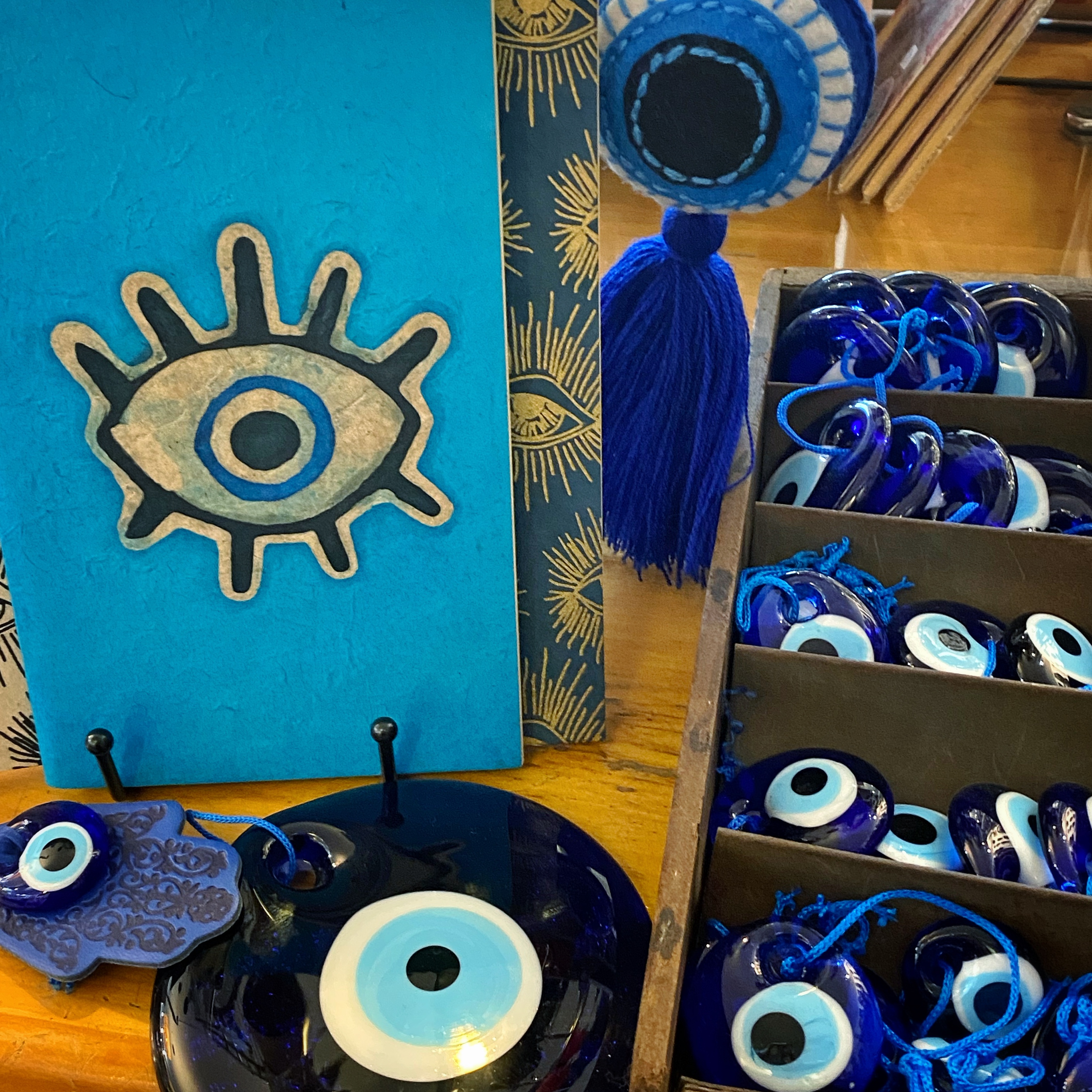Nestled in the vibrant culture of Turkey lies a centuries-old tradition steeped in mystique and symbolism: the glass evil eye. These talismans, known for their vivid hues and intricate designs, have captured the imagination of people worldwide. In this post, we delve into the rich history and artistic craftsmanship behind Turkish glass evil eyes, exploring their significance and enduring appeal.
The origins of the glass evil eye can be traced back thousands of years to ancient Mesopotamia, where belief in the evil eye's power to ward off sinister and evil forces was prevalent. Over time, this belief spread across various civilizations, including the Greeks, Romans, and Ottomans, each adding their unique cultural influences to the tradition.

Crafted by skilled artisans using centuries-old techniques, Turkish glass evil eyes are celebrated for their exquisite beauty and craftsmanship. These miniature works of art often feature vibrant colors, intricate patterns, and meticulous detailing, reflecting the artisan's dedication to their craft.
Central to Turkish culture, the evil eye, or "Nazar Boncugu," is believed to possess protective powers against jealousy and ill will. It is commonly displayed in homes, offices, and vehicles to ward off negativity and bring good fortune to its owner. The concentric circles and vibrant colors of the glass eye are thought to absorb negative energy, keeping the wearer safe from harm.
Turkish glass evil eyes come in a myriad of shapes, sizes, and designs, catering to diverse tastes and preferences. From traditional blue-and-white motifs to modern interpretations featuring intricate patterns and motifs, there is a glass evil eye to suit every style and occasion.
Despite modern advancements, the art of crafting Turkish glass evil eyes remains deeply rooted in tradition. Artisans continue to uphold age-old techniques, passed down through generations, ensuring that each piece retains its authenticity and cultural significance.
In recent years, Turkish glass evil eyes have gained popularity beyond Turkey's borders, captivating audiences worldwide with their charm and mystique. From fashion accessories to home decor, these timeless talismans have found their place in contemporary culture, serving as reminders of the enduring power of tradition and belief.
As we journey through the history and artistry of Turkish glass evil eyes, we gain a deeper appreciation for their cultural significance and timeless beauty. More than mere decorative objects, these enchanting talismans serve as symbols of protection, tradition, and unity, bridging the gap between past and present, and connecting people across continents in a shared belief in the power of positivity and resilience against adversity.
See Native's Evil Eyes
© All Photos are the Property of Native and Can Not Be Used Without Permission


